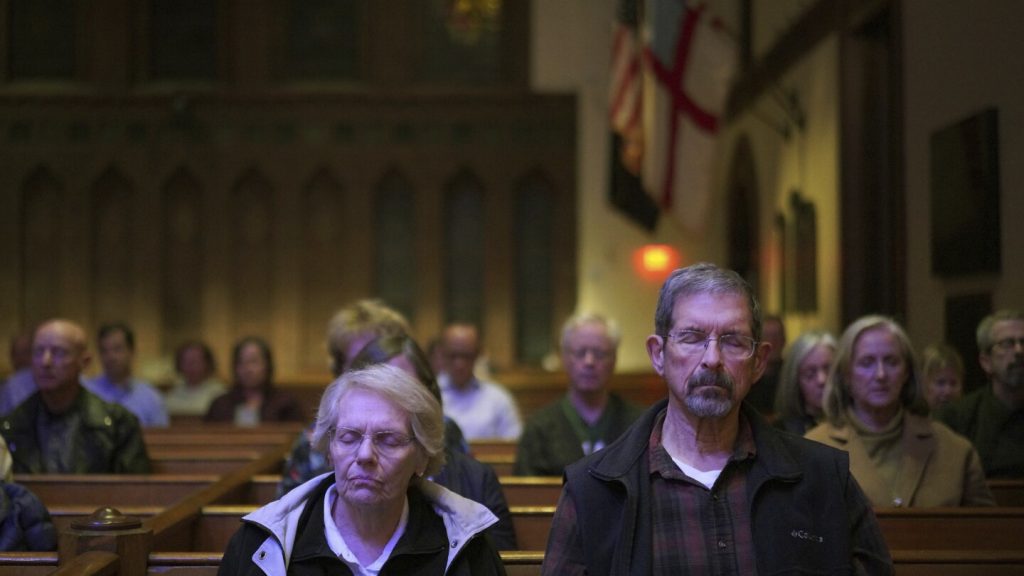In Lancaster, Pennsylvania, Rev. David Peck is leading a program at St. James Episcopal Church called “Contemplative Citizenship” aimed at helping people navigate the anxieties and conflicts stemming from the bitterly contested presidential campaign. Drawing on his experience in international development, Peck believes that religious groups can be part of the solution to these divisions by tapping into common spiritual traditions. He emphasizes the importance of applying faith creatively in a conflicted political landscape and helping people respond to conflict more deliberately.
Peck’s program includes guided meditations, discussions, and reflections on classic prayers from various religious traditions. By incorporating techniques of prayer and meditation, participants are encouraged to build spiritual muscles that enable them to respond to differing viewpoints with calm and strength. The focus is on fostering a more contemplative approach to citizenship, which involves being prayerful, thoughtful, and engaged in political discourse.
Participants in the program appreciate the opportunity to learn ways to filter out hostility in political conversations and respond from a place of spiritual calm. The weekly gatherings at St. James attract Episcopalians, Catholics, Quakers, and others seeking guidance on how to engage in discussions and debates more humbly. By emphasizing the importance of self-reflection and recognizing the humanity in others, Peck’s program aims to create spaces for dialogue and understanding.
The use of mantras and prayers from different religious traditions, such as the Lord’s Prayer and the Jesus Prayer, provides participants with tools to navigate the challenges of the current political landscape. Through quiet meditation and reflection, individuals are encouraged to cultivate empathy, mercy, and understanding towards those with differing political beliefs. The program encourages people to acknowledge their own shortcomings and biases, as well as those of others.
Peck draws inspiration from historical figures like Mahatma Gandhi and Martin Luther King Jr., who used spiritual practices to fuel movements for social change and justice. He believes that these examples demonstrate the power of faith-based groups in promoting peace and reconciliation. By teaching practices of prayer and nonviolence in community settings, Peck hopes to build a foundation for promoting dialogue and understanding in times of stress and distress.
As election-related tensions run high, Peck remains hopeful that the lessons learned through the “Contemplative Citizenship” program can help individuals navigate conflicts and promote healing in their communities. By encouraging people to approach political discourse with humility and compassion, Peck believes that faith-based traditions hold the key to bridging divides and fostering a more contemplative citizenship. The program serves as a reminder that even in times of uncertainty, there is room for reflection, growth, and empathy among individuals with differing viewpoints.


